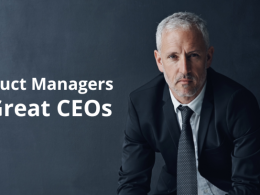If you’re a Data Scientist looking for your next career move, you may have your sights set on a role at Capgemini, one of the world’s leading consulting and technology companies. However, landing a job at Capgemini as a data scientist isn’t easy, and you’ll need to go through a rigorous interview process to prove your skills and experience.
In this blog, we’ll provide a comprehensive guide to the different stages of the Capgemini Data Scientist interview and share tips and tricks to help you succeed.
Whether you’re a seasoned data scientist or just starting in your career, this blog will help you navigate the interview process and land your dream job at Capgemini.
5 Tips to Crack the Capgemini Data Scientist Interview
So, let’s dive in and learn how to master the Capgemini Data Scientist interview!
1. Initial Screening
The first step in the Capgemini Data Scientist interview process is the initial screening. This is often done through a phone call or video interview, where the interviewer will ask questions about your experience, qualifications, and motivations for wanting to work for Capgemini.
They’ll also want to know about your technical skills, such as programming languages, data analysis, and machine learning.
2. Technical Interview
The next stage of the Capgemini Data Scientist interview is the technical interview. During this stage, you’ll be asked to demonstrate your technical knowledge and skills. You may be given a coding challenge or asked to solve a real-world business problem using data analytics and machine learning.
The interviewer will want to see your thought process and problem-solving abilities, as well as your ability to communicate your ideas effectively.

3. Case Study
The case study is an essential part of the Capgemini Data Scientist interview process. During this stage, you’ll be given a hypothetical business problem to solve using data analytics and machine learning. The interviewer will be looking for your ability to use your technical knowledge to solve practical business problems, as well as your creativity and ability to work under pressure.
Make sure you’re familiar with the different machine learning techniques and tools available, and be prepared to explain your thought process and decision-making.
4. Behavioral Interview
The behavioral interview is designed to assess your soft skills and suitability for the role of a data scientist at Capgemini. The interviewer will ask questions about your previous experience, how you’ve handled difficult situations, and your communication and teamwork skills.
It’s essential to be honest and open in your answers, demonstrating your ability to work collaboratively with others and your commitment to delivering high-quality results.
5. Final Interview
The final interview is the last stage of the Capgemini Data Scientist interview process. This is usually a meeting with senior management or HR representatives, where you’ll have the opportunity to ask any questions you may have about the company and the role.
This interview is also an opportunity for Capgemini to assess your cultural fit, ensuring that you share their values and vision.
If you’re planning to apply for a data scientist position at Capgemini, you’re probably wondering what it takes to crack the interview.
Interview Tips for Capgemini
Here are some tips and tricks to help you succeed:
A. Prepare Thoroughly
The key to cracking the Capgemini Data Scientist interview is preparation. Research the company, its culture, values, and vision, and read up on the latest developments in data analytics and machine learning.
Prepare for technical questions by brushing up on your coding skills and familiarizing yourself with different machine learning algorithms and techniques. Practice your problem-solving skills by solving case studies and real-world business problems.
B. Showcase Your Technical Skills
The technical interview is a critical part of the Capgemini Data Scientist interview process. To succeed, you must showcase your technical skills by demonstrating your proficiency in programming languages, data analysis, and machine learning.
Be prepared to explain your thought process, methodology, and decision-making. Don’t be afraid to ask questions if you’re unsure of anything.
C. Master the Case Study
The case study is an essential part of the Capgemini Data Scientist interview process. You’ll be given a hypothetical business problem to solve using data analytics and machine learning. To crack the case study, you must understand the problem, identify the variables, and choose the appropriate machine learning technique to solve the problem.
Be prepared to explain your solution in detail, highlighting your thought process and decision-making.
D. Emphasize Your Soft Skills
The Capgemini Data Scientist interview process also assesses your soft skills, such as communication, teamwork, and leadership. Be prepared to demonstrate your ability to work collaboratively with others and communicate effectively.
Emphasize your previous experience in team-based projects, highlighting your contributions and achievements.
E. Be Authentic
Finally, it’s essential to be authentic during the Capgemini Data Scientist interview process. Be honest about your strengths and weaknesses, and don’t be afraid to ask questions. The interviewers are looking for someone who is a good fit for the company, so be yourself and let your personality shine through.
In conclusion, cracking the Capgemini Data Scientist interview requires preparation, technical proficiency, problem-solving skills, and soft skills. By following these tips and tricks, you can increase your chances of success and land your dream job at Capgemini. Good luck!
Take charge of your future and make your mark in the world of data science. Join us at Accredian and start your transformation from insights to algorithms today!
Dive into our collection of Data Science resources for continuous learning. Don’t miss this opportunity! Join us today for an exhilarating journey toward a fulfilling career in Data Science! Let’s make your data-driven dreams a reality!
We hope you enjoyed reading this blog and found the insights valuable. If you have any questions or comments, feel free to reach out to us.





